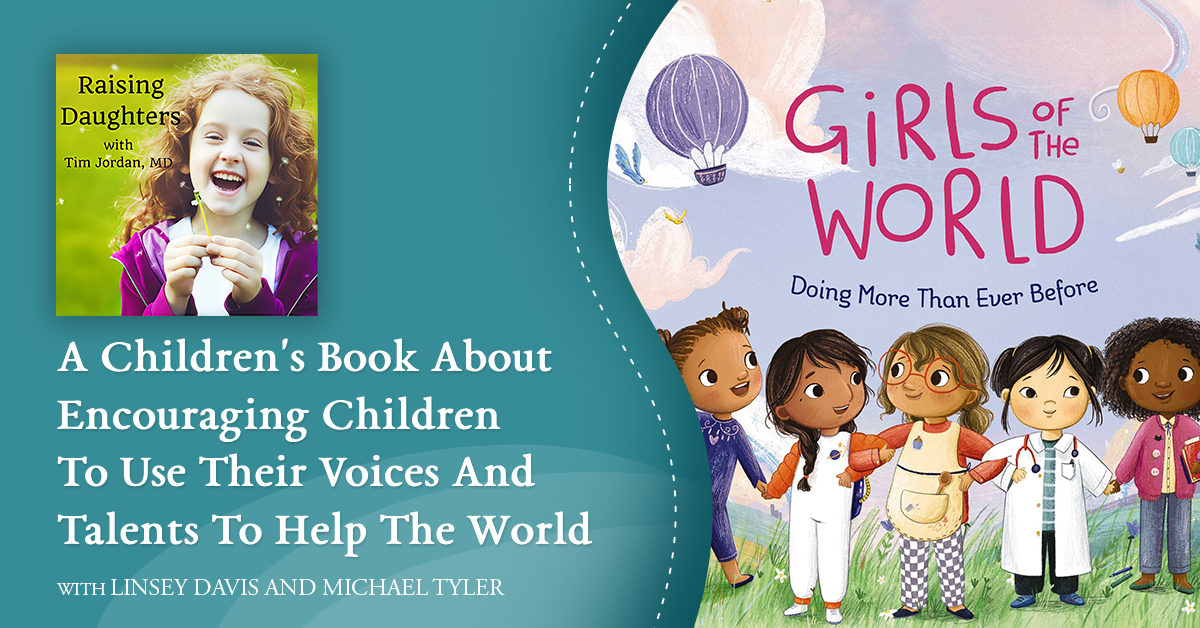
Authors Linsey Davis and Michael Tyler describe their new, inspirational book about encouraging girls to use their talents and voices to speak up about what’s important to them and to help the world. The book also invites girls to celebrate the equality and fairness we should all experience and to be strong and brave.
See link for Girls of the World: Doing More Than Ever Before.
—
Listen to the podcast here
A Children’s Book About Encouraging Children To Use Their Voices And Talents To Help The World With Linsey Davis And Michael Tyler
Hey friends, thank you so much for stopping by again for another episode of Raising Daughters. As you know, I interview lots of authors on this show, but today I have a different kind of author, actually authors, two authors who wrote a book, and it’s a children’s book. I think this may be the first time I’ve interviewed someone about a children’s book, and I’m really excited because I got a chance to preview it. This book just came out, a week ago. It’s about girls, empowering girls and how girls can help us to solve problems in the world. It’s very timely and also very interesting. Thank you all. I have on the show, Linsey Davis, and also the other co-author, Michael Tyler. Thank you all for coming on the show, first of all.
Thanks so much for having us, Tim.
It sounds like the book is already catching some lots of interest for you guys.
Yes, I think we have had some really good fortune with getting the attention of, I don’t know if it’s just the girls of the world, but perhaps the mothers and fathers as well, to get a sense that this is a great opportunity to plant the seeds early on in our little girls, to empower them, affirm them, to give them quite often the self-assurance that the society unfortunately doesn’t always give. I just think for me as a mother of a young boy, what’s interesting to me is that I’ve seen this dynamic play out in our own home where I have a son who’s saying, “Oh, that’s for girls. Oh, I’m not cooking that. Men don’t cook. My wife will do that.” These are things that certainly we haven’t tried to ingrain in him, but society has, or even as people always say that more can be caught than taught. I think that’s true.
This is a great opportunity to plant the seeds early on in our little girls to empower them, affirm them, and give them quite often the self-assurance that society unfortunately doesn't always give. Click To TweetMy husband can make a mean bowl of oatmeal, but his cooking, his culinary skills stops there. I think that my son is just observing that and then thinking that’s not my role. I think that quite often, just in the same way of what girls observe, it can be limiting. It’s by no mistake that this book came out on Super Tuesday and we’re talking about an election where, again, it’s between two men and when you look at the first inauguration of George Washington, which is in 1789, we haven’t had a woman leader since. Many times the United States is often touted as being this advanced country and we’re right at the cutting edge. There are so many other countries who are way ahead of us as far as having females as their prime ministers and presidents.
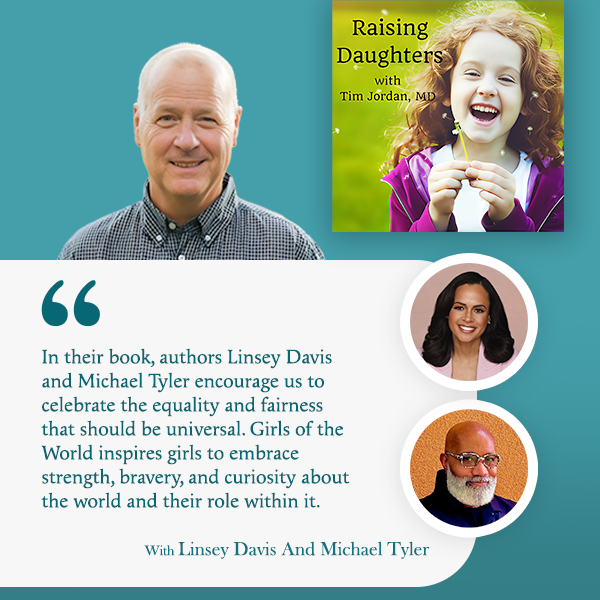
I just feel like it’s a blessing that other people feel like Michael and I do, that girls need this kind of affirmation. And Michael, I’ll let you kick in here.
I don’t know how much more I need to kick in ’cause that mule door is bursting wide open with what you just got to say. I endorse everything that Lindsay says and I look at it also on the level of what we’re really dealing with when we have books like this are how are we thinking and considering the character development of our children? When you look at biases and isms, those to me are negations of character development. A lot of what has been the negation of girls and women in society to me has been the incomplete character development of men and boys.
I think that my participation in this book was to try to address it from that perspective because it’s all about how are we thinking about the human character development of everyone and to do that we have to for the time being, for some time to come in my opinion, assert that more for girls because they’ve been in the shadows of history for so long. Women have been in the shadows of history for so long. I think about a movie called Hidden Figures. I don’t think that they can be hidden anymore if we want to have the right amount of light on our society, that’s to the extent that I consider it.
Before we get into the book, I want to let people know who you guys are. Linsey Davis is an Emmy award winning journalist. She’s an anchor for ABC News Live Prime. She’s on TV a lot. She’s the author of actually, I think is it six children’s books now? Was this the sixth one
This is the sixth one, yes.
Yeah, she’s been doing this for a while and her husband also have a son as she mentioned. Michael Tyler is a writer, a speaker. He’s the author of two other books, The Skin You’re In and a book called Mirror Face. Those are stories about acceptance and self-love. He also likes to bake. He just told me before he came on the air. Now they wrote this children’s book together, which is awesome.
I will add that Michael also was with me on The Smallest Spot of a Dot, which was our New York Times bestseller. Our first book together and right out of the gate had tremendous success, no doubt, because of his brain power there as well.
The first pages of your book, I want to read the first stanza ’cause I thought it would lead into a couple of things we could talk about. It goes like this, “The sun will shine and the moon will glow. The birds will fly and the wind will blow. There’s another great truth all people should know, the girls of the world are ready to go.” And by the way, the whole book is a rhyming book and it’s really, you guys do a beautiful job of rhyming. I actually did interview a children’s author a couple of years ago. It’s a book that they wrote through National Geographic called No Boundaries. I’m not sure if you ever saw that book.
The two authors, there’s two women and they biographies some women who are in these really interesting fields because like some girl might say, “I love animals.” Okay, I guess you can be a vet. But in this book, they have all these really interesting occupations that women got into. Primatologists, the woman who was studying volcanoes and these interesting jobs because our girls have not had up to this point enough role models to look at to say, you can do this. It’s one thing to say it, it’s another thing to show it, and I think that message comes out in your book.
I would agree with you on that. To me, it’s more than an issue of not giving girls the opportunity to do these things. It’s more about making them aware that they even exist for them to do. When you bring an occupation like a volcanologist, a lot of people have never heard of that when they were three, four, five, six, seven, eight, nine years old. They know doctor, lawyer, mailman, but they don’t know that there’s so many other things out there. Part of what biases do is prevent people from getting that awareness of even knowing that there’s something else that exists out there. But to me, there is no sphere, space, sector or parameter that women have not already had impact on.
For the most part, the information about the impact that women have had and girls has been denied even their knowledge, not just everyone’s knowledge, even their knowledge of. One of the things that Linsey and I are trying to do with the message that we have in our book is to give girls this sense of empowerment in their own identity formation. They will not allow themselves to be denied that kind of knowledge. They will not allow themselves to be denied that kind of opportunity. To me, that speaks to what it was you just got through talking about.
There's no space, sector, or parameter that women have not already had an impact on; it's just that, for the most part, the information about the impact that women and girls have had has been denied. Click To TweetYeah, I would just add a quick little anecdote from a colleague of mine who, before the book even came out, I had given ’cause she has a four-year-old daughter. So she videotaped in the evening and sent me a video of her daughter, who she said we couldn’t even get through the book because she stopped in this moment. She just started saying, “We are brave. We are brave, we are brave.” And she made this little mantra out of it. It really made me tear up. She said she’s never associated being brave with who she is. I think that many of these words that we use, not only brave, but strong or ambitious, I think that these are words that quite often you see associated with boys and not with girls. We’re limiting our children right off the bat with what we assume or presume that they will be or desire to be.
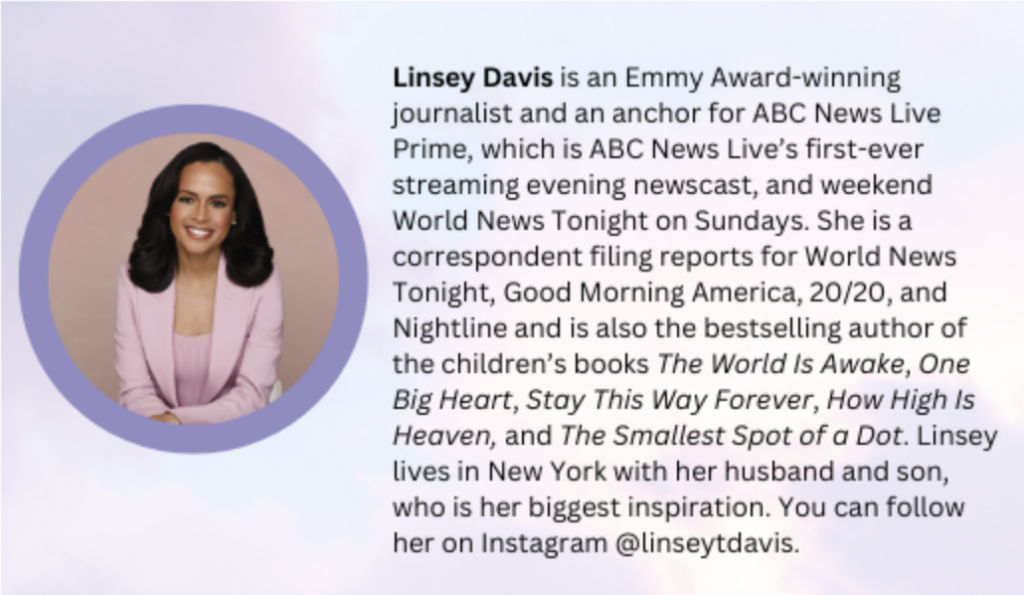
I think that this is kind of turning on its head with the kinds of associations that we have made here. Even if you think about when these girls grow up to be women, and women are told that they’re too ambitious, they’re too bossy, right? But you don’t hear that of men. I’ve never heard of a male being described as too ambitious, right? There are these things that I think that we have to make them positive associations. And I’ve talked about with regard to this book as well, that quite often even the sayings that we have, the old adages, like you throw like a girl, that’s a negative thing, but boys will be boys, which means that any kind of behavior that boys have is acceptable behavior.
I just think that there are these mindsets that we have to undo and what better way to do it because it’s easier to create and plant this in some fertile soil, in many cases it is to undo people who have their old tried and true traditions and beliefs. That’s why I think that to impact the youngest among us is the most significant and ultimately impactful.
By the way, the book we’re talking about, I think I forgot to mention the title. It’s called Girls of the World, Doing More Than Ever Before. I work with girls in retreats and summer camps. I have a school program. I’ve been doing it for 35 years. When I sit in circles with girls a lot of times, I’ll ask them, who are the leaders in your school? Who are the leaders in your group? I would ask who are the heroes in society? And you always get the same answers, right? They’re first responders, they’re soldiers, they might be professional athletes. It’s the queen bee, it’s the most popular kid, it’s the student council president, it’s the best athlete.
They have this definition of, like you’re talking about, Lyns, you were mentioning, of strength, courage, power, leadership, but it’s like this, it’s a very narrow definition. And I think one of the things I like about your book is you’re gonna open up conversations that parents can have with their kids about. It’s a lot more than that. It can look different than the traditional masculine model.
I have always thought in the books that I’m reading, because I have a son who’s gonna be 10 soon, he’s been my muse really in all the books. I’ve been able to show him in many of the cases, I’ve been able to read him before we even have the illustrations, just to see what grabs his attention, what he likes, what he doesn’t like. I’ve always been an observer just by nature, watching him when he was reading any books. I think that it’s so important, I always thought as a parent reading to my son, that the material be engaging for me too. I always thought about it in terms of like the Disney movies or Pixar, where the ones that I feel often do the best at the box office have a double message at the same time.
There’s the joke that just the elevated adult is gonna get. Then there’s the joke that just the kids are gonna really get, but they’re intertwined. As a parent, when you’re reading the books before your children can learn how to read, I think it’s important that you feel like this is actually a good message here for my child. I think that’s when I look back at some of my favorite children’s authors, the Dr. Seuss’s or Shel Silverstein’s like the Giving Tree. The Giving Tree, there’s a great message there for adults as well as children, and I’ve always tried to emulate in the books that we’re putting out there. These are gonna be messages that parents are happy to share. It’s like the cereal that’s good for you. It’s fortified with good vitamins and nutrients here. But not only is it good for you, it tastes good, right?
The kids don’t mind eating it. I think that what we’re able to do with Lucy Fleming with her beautiful illustrations that are whimsical and fun is really kind of bring the kids in. One last thing I’d like to say about those illustrations in particular, this is very deliberate and I’ve worked with her for all six of the books that we’ve done, is to be inclusive. People often talk about, especially right now with DEI, that can be a bad thing in some circles. I still believe that it’s positive, but bringing everybody into the tent is quite often just based on race or gender. I think it goes beyond that to also include religious beliefs.
Also we have two different girls who are in wheelchairs. We have one girl who had a prosthetic leg, and that is very intentional, because inclusivity needs to bring everybody in. It’s not just black and white. It’s not just boys and girls. And that’s something that we’ve been really deliberate about. I feel like, once again, Lucy hit it out of the park with that.
Inclusivity needs to bring everybody in. It's not just black and white. It's not just boys and girls. Click To TweetWe’re talking with Linsey Davis and Michael Tyler, who are the authors of a new book that just came out about a week ago. The book is called Girls of the World, Doing More Than Ever Before. One of the things that I think, even today, year 2024, like you were mentioning earlier, Linsey, girls are still absorbing this good girl conditioning. You’d think we’d be beyond that, but I had girls. I did this like a month ago, I had girls at our weekend retreat make a list. These are middle school girls. Make a list of the qualities of a good girl. They wrote all the things that they’ve been absorbing from the culture. They have things on there like being perfect, always being happy, putting other people’s needs first. They go on and on and on with things. It’s disturbing, but that’s what they’re absorbing from the culture.
I think one of the advantages of a book like this, I was telling this to Michael before we came on, I run weekend retreats and camps for girls in grade school, middle school, high school, even retreats for women in college sometimes. I love children’s books like this to read, even to the older kids, because the message is there and they can hear it, they can see it. Then they can talk about how it fits for them and it resonates. I think that good girl conditioning, I think we need to do a much better job as parents as a culture of reeducating, reframing for our girls.
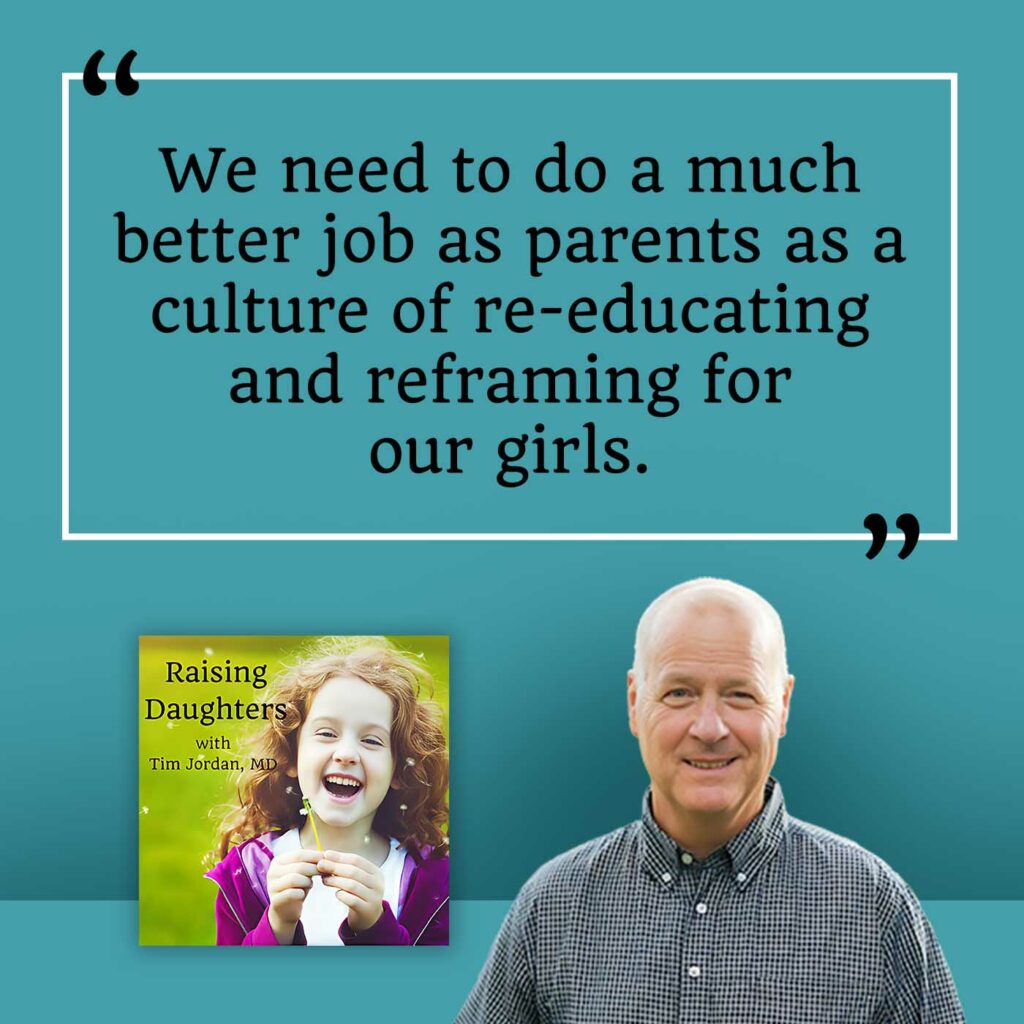
I would say that, because when you say good girl, you’re talking about an adjective. Linsey spoke a little while ago about the adjectives and superlatives that are oftentimes used to distinguish between boys and girls. One of the things that motivated me to join Linsey in writing this book, this is nothing that’s specifically stated in the book, but it’s always operating in my mind, unfortunately we think the word gender is a synonym for women. Because of that, we tend to make these distinctions and differentiations about how we’re indoctrinating girls and boys, because courage should not be a male gendered word. Good should not be a female gender word. Gender to me is something that needs to be demystified, is something that needs to be understood differently is not being a synonym for women.
Unfortunately, we think the word 'gender' is a synonym for women. And because of that, we tend to make these distinctions and differentiations about how we're indoctrinating girls and boys. Click To TweetBecause as long as men think that gender is a synonym for women, we won’t have gender equity because men aren’t interested in women being equal to them. That to me is one thing I am highly motivated by that I hope this generation of girls comes to understand. I hope that this generation of mothers and fathers and boys comes to understand that gender is not something that is specifically a synonym for women. I think to do that, this is something else that Linsey also pointed to earlier about perspective and mentality is, I always think about what is the mental infrastructure we are given our children.
When you talk about indoctrination, what’s the mental infrastructure? To me, mental infrastructure is what builds character. You have to take the I beings or principles, you have to fasten them with the nuts and bolts of the universal to bring about an understanding of what it means to be human. I think if we can have that as a prevailing distinction of all people, then in the next few years or so, maybe we may not to have this discussion. That’s what my motivation in writing anything like this is how do we get to answer the question more, what does it mean to be human? Therefore, no matter what adjective or superlative you come up with, it can apply to anybody and it doesn’t have to be something that demeans or diminishes or denigrates.
We’re talking with the authors of a new book called “Girls of the World Doing More Than Ever Before.” I also think your book, there’s lots of points that I think parents can bring up to their kids. There’s a lot of research that shows when you watch TV shows, and I think when you read books with kids, that that’s so valuable in order to hear where your kids are at, what they’re thinking, what’s going on for them, and also then to impart some experience, wisdom, or whatever you wanna call it. This book will be a great way for parents to instigate conversations about inclusiveness, diversity, leadership, courage, and all these things that we’re talking about.
One of the things that was brought up in one of the parts of the book, it says, “It’s time to make real what we feel in our hearts.” One of the things I’ve noticed with girls and young women today is that because they’re so busy and they’re so distracted, there’s so much stuff that they’re up to with their devices and things, we’re not doing a good job with kids of teaching them how to slow down, get quiet, go inside, access their intuition, access what’s right for them. Another point I think in the book about, it’s one thing to say, “Follow your heart,” it’s another thing to say, “Yeah, but how do you access that? How do you know?”
I think social media is a blessing and a curse. I think that quite often our greatest strengths can be our greatest weaknesses. That if you look at some of the statistics with regard to girls having eating disorders or feeling suicidal, quite often they’re seeing that it’s this measuring up constantly. Or even if we talk about, I’m just coming off of Oscars coverage. The Barbie, that monologue, I think like the two minute, 17 second monologue that America Ferrera did, talking about just how hard it is to be a woman. Like, even women don’t like other women. Being still is something that in our society we’re not doing lately. Even if we’re complacent, if we’re sitting still, quite often our young girls are on social media. There’s always this kind of competition and comparison.
Social media is a blessing and a curse, and quite often, our greatest strengths can be our greatest weaknesses. Click To TweetI know when I was young, I would just do a puzzle or I’d put together, like I’d have my little hobbies, read a book or I was really, to play off of a title of one of Michael’s prior books, “The Skin I’m In,” I was really comfortable in my own skin. Maybe that’s because we didn’t have social media when I was growing up. I do think that we have to get back to the basics of looking in the mirror, right. Looking at what we have going for ourselves, rather than looking at the masses and looking at what we don’t have, that the other people do. Obviously that’s not something that we get into in the book, but the book I think is like, whatever it is that’s in your heart, go for that, right. Let’s make real what we feel. I hope that the basics of it.
I like that you point out it rhymed. That’s always been how my books have been because I’d read early on that rhyming books help children learn how to read. That has also been very important to me. I do think that the basics are there. The fundamentals are there to build confident girls with assurance and high self-esteem. I’m good enough, I’m worthy. Those are the things that, again, going back to that mantra, like we are brave, whatever it is that you choose to pick up that you need for yourself, I hope that they’ll find it in this book.
I can go along with that. I would just add that I think that you brought up the word intuition. I’ve always considered insight to be what the mind’s eye sees and intuition to be what the soul’s voice says. I think that when people are allowed to, it takes quiet time, it takes a long time to introspect because both of those words, insight and intuition, begin with I-N, it’s internal. It requires that so much of what goes on is external focus and externalization of who we are. If we can get more young people in this particular case, more young girls, to take that time and to not be distracted when they are alone, like Linsey said, they could be by themselves and they’re still playing with a cell phone.
If they can understand insight and intuition to be what we see and what we hear when we allow ourselves to communicate with ourselves, I believe the power that we’re trying to encourage them to have and the courage, the bravery we’re trying to encourage them to have, they will realize it’s already in them. It’s an oar, it’s buried in them, it’s a resource, a jewel, they just have to dig in to find it.
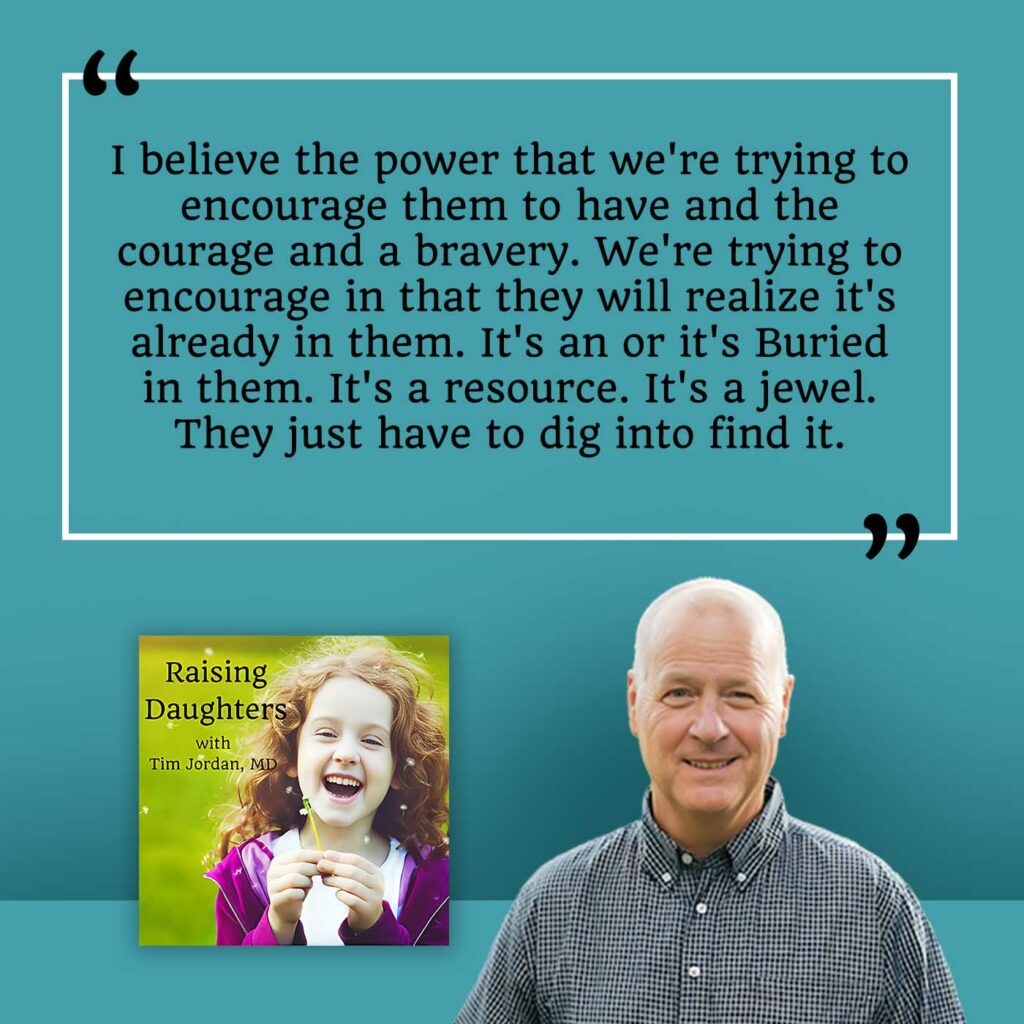
As we end here our conversation, ’cause I know you all are busy people, we’re talking about a new book that came out recently, it’s a children’s book, I would highly recommend all my listeners read it to their kids. It’s called “Girls of the World, Doing More Than Ever Before.” I wanna read the last page, the last line that I had you guys comment about. It goes like this, “Let this be the day all girls become one, pledging to do what needs to be done. Let’s show the whole world we are fast on our way. This is our moment, today is the day.” I’m wondering if since today is the day, what’s one parting message that you would like to give to the parents who are listening to “Raising Daughters” about the book is so fun to read, the rhyming helps, there’s so much not information, but there’s so many points that you can bring out for discussion with your sons and daughters both. What’s one last message you’d like to give to parents who are listening to this?
I’ll just pick up on the today is the day because I think a lot of people think about things in the future, things down the road, you kick that can, then you never really get to it. That dream that you have, you’ve had it for five years, you’ve had it for 10 years, and it just doesn’t get started, it just stays. I’ll even speak to my own example of when my son was first born and it still took me many years to write my first book, but I had been dreaming of it, I’d been thinking about this book. I remember so distinctly being out with a very good friend of mine, he said, “Then write the book.” Somehow in that conversation I said, “You’re right.” It’s like I’d just been mulling it over, like one day, some day in the future.
The next day I started writing the book. I think that we need to seize the day, that we need to act as if there isn’t a tomorrow, that it is so timely and crucial and urgent that we start thinking and living with this kind of mindset that we can, that we’re good enough, that we’re able, we are brave, we’re strong, we’re courageous, all those things, we need to do it now, otherwise time just passes us by.
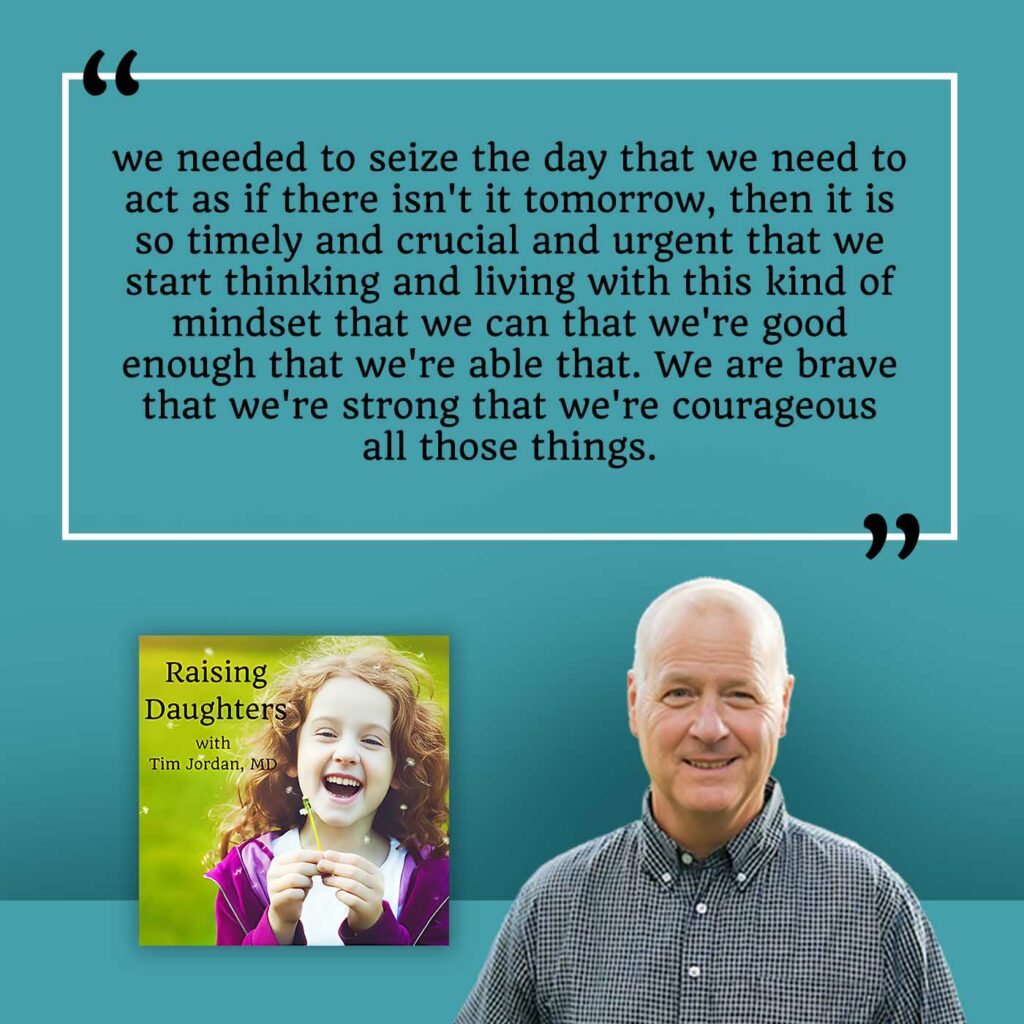
I would add to that, just one thing I was gonna monitor of mine. I’ve always said, I don’t know when is the right time to do something, but the wrong time is always tomorrow.
Oh, that’s good.
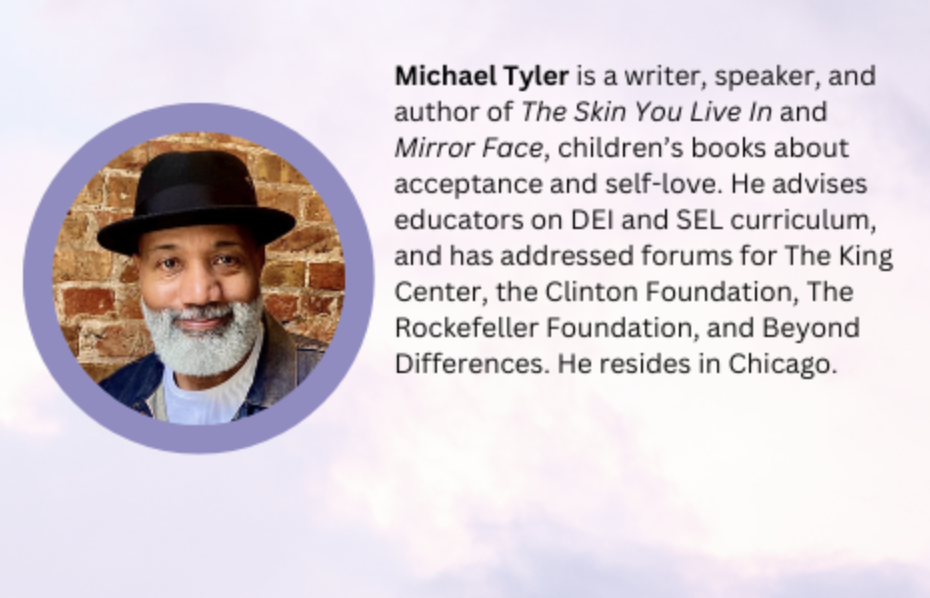
Very nice, that’s awesome. I always like to make sure girls also know that they’re giving a message in the culture that being successful looks like being the CEO of a company, or there’s a certain kind of standardized, pressurized, like it’s gotta look like this. I think one of the things I like about your book is there’s so much diversity in pictures and kids and thoughts. I want girls to know that doing it all can look like whatever it looks like for you. It doesn’t have to be what the culture is telling you it’s supposed to look like.
Amen, I think that that’s inherent in the pages of the book. I hope that that is what people take away from it.
Yeah, I got that out of that. We’ve been talking to Linsey Davis and Michael Taylor, the authors of a new book called “Girls of the World, “Doing More Than Ever Before.” Where can they find this book?
Yes. Wherever books are sold, Amazon, Barnes and Noble, wherever you buy your books.
Great, well, good luck. Hopefully lots of people buy your book ’cause it really is a good message. It’s also delivered in a very fun package, which is I really think it’s important.
Thank you so much, Tim, for having us.
Yeah, thank you for your time, I appreciate it.
Thanks.
About Michael Tyler
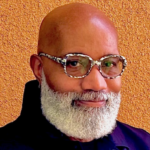 Michael Tyler is a writer, speaker, and author of The Skin You Live In and Mirror Face, children’s books about acceptance on DEI and SEL curriculum, and has addressed forums for The King Center, the Clinton Foundation, The Rockefeller Foundation, and Beyond Differences. He resides in Chicago.
Michael Tyler is a writer, speaker, and author of The Skin You Live In and Mirror Face, children’s books about acceptance on DEI and SEL curriculum, and has addressed forums for The King Center, the Clinton Foundation, The Rockefeller Foundation, and Beyond Differences. He resides in Chicago.
About Linsey Davis
 Linsey Davis is an Emmy Award-winning journalist and anchor for ABC News Live Prime, which is ABC News Live’s first-ever streaming evening newscast, and weekend World News Tonight on Sundays. She is a correspondent filing reports for World News Tonight, Good Morning America, 20/20, and Nightline and is also the bestselling author of the children’s books The World Is Awake, One Big Heart, Stay This Way Forever, How High Is Heaven, and The Smallest Spot of a Dot. Linsey lives in New York with her husband and son, who is her biggest inspiration. You can follow her on Instagram @linseytdavis
Linsey Davis is an Emmy Award-winning journalist and anchor for ABC News Live Prime, which is ABC News Live’s first-ever streaming evening newscast, and weekend World News Tonight on Sundays. She is a correspondent filing reports for World News Tonight, Good Morning America, 20/20, and Nightline and is also the bestselling author of the children’s books The World Is Awake, One Big Heart, Stay This Way Forever, How High Is Heaven, and The Smallest Spot of a Dot. Linsey lives in New York with her husband and son, who is her biggest inspiration. You can follow her on Instagram @linseytdavis